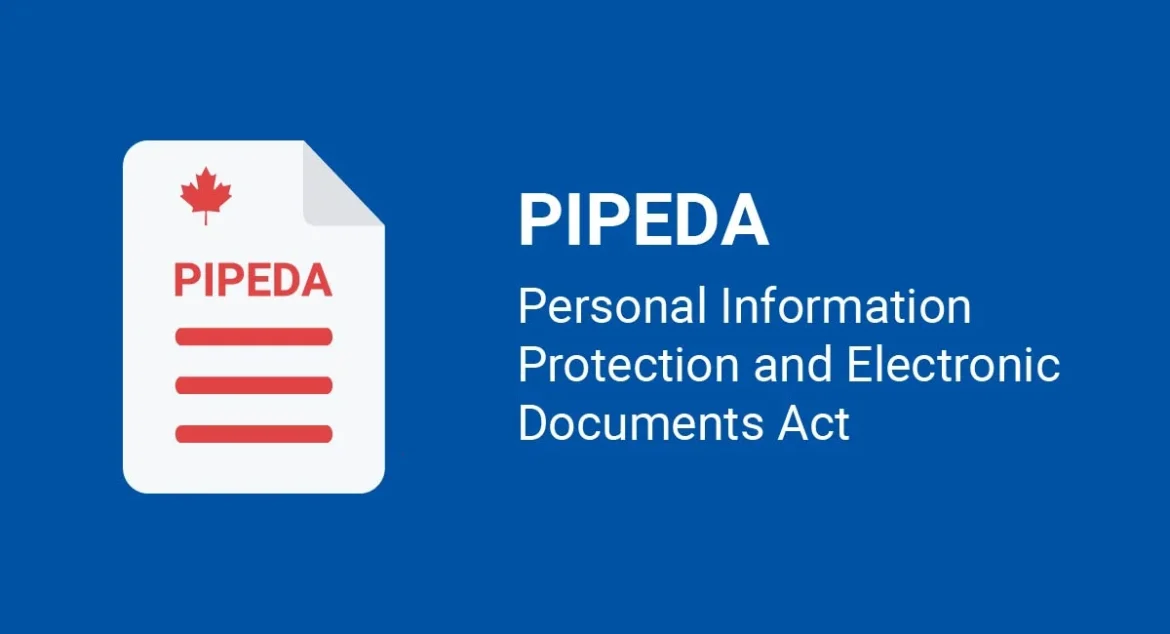In a landscape shaped by the seamless flow of digital transactions and online engagements, safeguarding personal information has emerged as a critical imperative. At the forefront of Canada’s commitment to data privacy is the Personal Information Protection and Electronic Documents Act (PIPEDA). This legislative cornerstone plays a pivotal role in shaping the contours of data protection, emphasizing transparency, accountability, and individual rights. This comprehensive guide is poised to delve deeper into the intricacies of PIPEDA compliance, unraveling its core principles, and illuminating the far-reaching implications for businesses navigating the Canadian terrain.
Understanding PIPEDA
PIPEDA, enacted in 2000, governs the collection, use, and disclosure of personal information by private-sector organizations. Its objective is to strike a balance between the need for organizations to gather information and the right of individuals to have their privacy respected.
Key Principles:
- Consent: PIPEDA emphasizes obtaining informed consent before collecting personal information. Individuals must be aware of the purpose for which their data is being collected and used.
- Limiting Collection: Organizations are required to collect only the information necessary for the intended purpose. This principle discourages the indiscriminate gathering of data.
- Purpose Limitation: Personal information should only be used for the purpose for which it was collected unless the individual provides consent for other uses.
- Accuracy: Organizations are obligated to keep personal information accurate, complete, and up-to-date to ensure its relevance for the intended use.
- Safeguards: PIPEDA mandates organizations to protect personal information through security safeguards, preventing unauthorized access, disclosure, copying, use, or modification.
- Openness: Organizations must be transparent about their privacy policies and practices. This includes making information about policies and practices easily accessible to individuals.
- Individual Access: Individuals have the right to access their personal information held by an organization and challenge its accuracy.
- Challenging Compliance: Individuals have the right to challenge an organization’s compliance with PIPEDA. This includes the right to file a complaint with the Office of the Privacy Commissioner of Canada.
The Landscape of PIPEDA Compliance
1. Purposeful Data Collection: Businesses operating under PIPEDA are tasked with collecting only the information that is absolutely necessary for the intended purpose. This principle discourages indiscriminate data gathering, ensuring that personal information is treated with precision and care.
2.Safeguarding Information Assets: PIPEDA mandates organizations to fortify personal information through robust security safeguards. These measures act as a bulwark against unauthorized access, disclosure, or modification, underscoring the commitment to data integrity and confidentiality.
3.Openness and Accessibility: Transparency is the linchpin of PIPEDA compliance. Organizations are required to be open about their privacy policies and practices, making this information readily accessible to individuals. This fosters trust and empowers individuals to make informed decisions about their data.
Implications for Businesses
Compliance with PIPEDA is not merely a legal obligation; it is an ethical commitment to respecting individuals’ privacy rights. Businesses must proactively integrate PIPEDA principles into their operations, fostering a culture of data responsibility. Failure to comply can result in reputational damage, legal consequences, and the loss of customer trust.
Steps for PIPEDA Compliance:
- Data Mapping: Understand and document the flow of personal information within your organization, from collection to disposal.
- Privacy Policies: Clearly communicate your privacy policies to individuals, ensuring they are easily accessible and understandable.
- Consent Mechanisms: Implement robust mechanisms for obtaining and recording consent, ensuring individuals are fully informed.
- Data Security: Invest in robust security measures to protect personal information from unauthorized access, breaches, or cyber threats.
- Training and Awareness: Educate employees about PIPEDA principles and their roles in ensuring compliance. Create a culture of privacy within the organization.
- Incident Response Plan: Develop a comprehensive incident response plan to address data breaches promptly and effectively.
PIPEDA in the Digital Age
As technology evolves, so do the challenges related to data privacy. PIPEDA remains adaptable, recognizing the need to address emerging issues such as online tracking, cloud computing, and artificial intelligence. Businesses must stay informed about amendments to PIPEDA and adjust their practices accordingly to maintain compliance.
Upcoming Changes:
- Enhanced Consent Requirements: Anticipate changes to consent mechanisms, requiring organizations to seek explicit consent for specific data practices.
- Breach Reporting: Prepare for more stringent breach reporting requirements, mandating organizations to report significant breaches promptly.
The Future of PIPEDA: Adapting to the Digital Epoch
As technology continues its rapid evolution, PIPEDA remains adaptable, addressing emerging challenges such as online tracking, cloud computing, and artificial intelligence. Businesses must stay vigilant, staying abreast of amendments to PIPEDA to align their practices with the evolving digital norms.
Conclusion
PIPEDA compliance is not a one-time task but an ongoing commitment to protecting personal information. As businesses navigate the complexities of the digital landscape, integrating PIPEDA principles becomes a cornerstone of responsible data management. By prioritizing privacy, organizations not only comply with legal obligations but also build trust with customers, fostering a relationship based on transparency and respect. In the ever-evolving world of data, PIPEDA stands as a guide, ensuring that the digital era unfolds with due consideration for the privacy and dignity of individuals.


